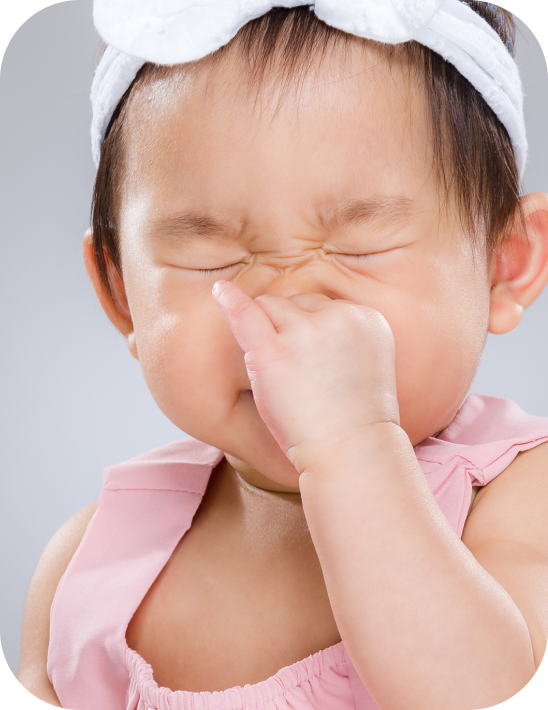Runny nose is the excess drainage of clear to thick fluid, which can also be yellow-green, from nasal and adjacent tissues in the nose.1
Sneezing is the sudden, forceful, uncontrolled burst of air through the nose and mouth, caused by irritation to the mucus membranes of the nose or throat.2
A runny nose is also sometimes called rhinorrhea or rhinitis1 but they are not the same thing. Rhinorrhea has been defined as a thin, mostly clear fluid running from the nose, while rhinitis also constitutes irritation and swelling inside the nose.1
There are 2 types of rhinitis – allergic and non-allergic. Allergic rhinitis is also called hay fever1, while non-allergic rhinitis is sneezing or a stuffy, drippy nose.1



